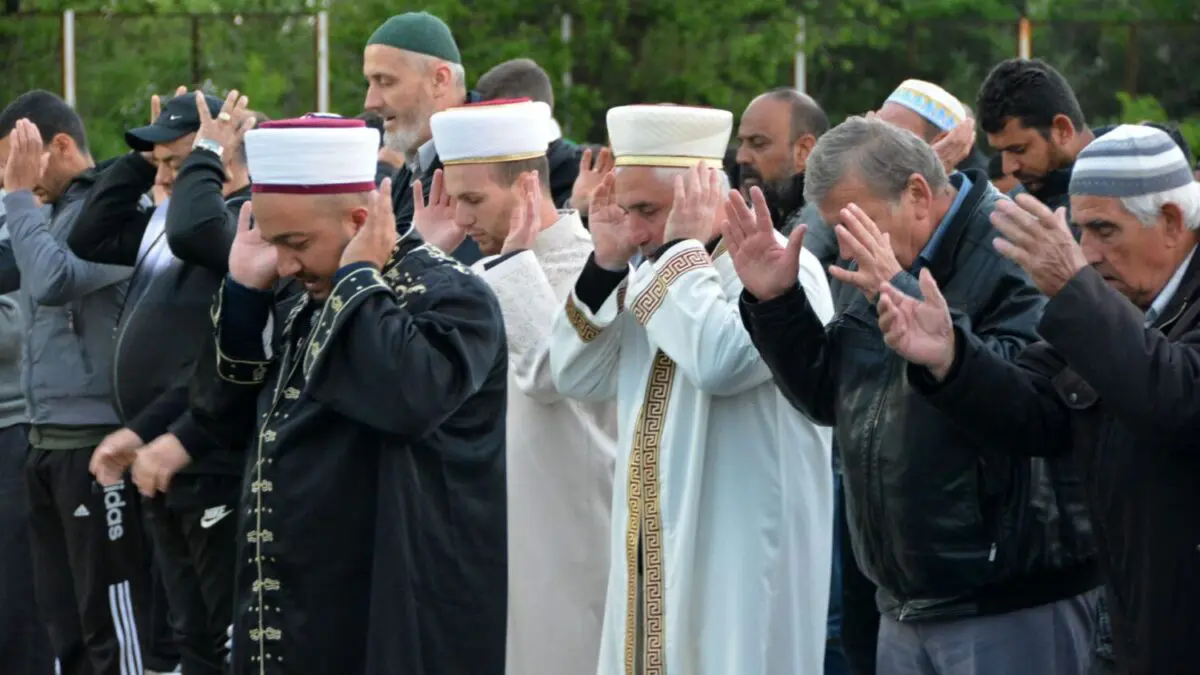The next annual report of the US State Department says that the anti-Semitic rhetoric in our country continues, Nazi symbols are freely sold, and religious door-to-door agitation is banned in some places.
The Annual Report to the United States Congress on Religious Freedom in the World – the International Report on Religious Freedom – has been published on the website of the US State Department. This annual report is presented in accordance with the International Law on Religious Freedom of 1998, BTA notes.
Among the findings for Bulgaria are complaints from the Muslim and Jewish communities in Bulgaria.
The document describes the status of religious freedom in each country and covers government policies that violate the religious beliefs and practices of groups, religious denominations and individuals, as well as US policies to promote religious freedom around the world.
The report provides a detailed and factual report on the state of religious freedom in 200 countries and territories and documents data on violations and abuses committed by governments, non-governmental organizations and individuals.
The introduction to the latest report quoted US President Joe Biden as saying: “We need to be vigilant against the rising tide of targeted violence and hatred at home and abroad and work to ensure that no one is afraid to attend religious services. school or community center, or walk the streets carrying the symbols of their faith. “
What the report says about Bulgaria
The section on religious freedom in Bulgaria in 2021 states that Muslim leaders have again said that several Bulgarian municipalities have refused permission to build new or renovate existing religious sites.
In addition, according to NGOs, souvenirs with Nazi insignia and images continue to be widely available in tourist areas across the country, and local authorities in few of these places have responded to the complaints. The report says anti-Semitic rhetoric has continued to appear regularly in online commentaries and social media sites, as well as in articles on electronic and traditional media. Anti-Semitic graffiti, including swastikas and insults, has appeared in public. The Jewish NGO Shalom has reported an increase in anti-Semitic hate speech online in the context of the COVID-19 pandemic and ongoing election campaigns, as well as vandalism of Jewish cemeteries and monuments.
The report notes that Bulgarian law allows registered religious groups to publish, import and distribute religious literature, but does not address the rights of unregistered groups with respect to such material. The law does not restrict the attraction of new supporters and members of registered or unregistered groups. Dozens of municipalities, including the regional towns of Kyustendil, Pleven, Shumen and Sliven, have ordinances banning door-to-door agitation and the distribution of religious literature without permission, the report said.
In September 2021, a publication on the online human rights platform Marginalia reported that the national census violated children’s rights in favor of religious groups, ignoring the legal right of children aged 14-18 to independent religious self-identification. According to the publication, the census instructions allowed adults to increase the number of members of a religious group to include their children, which directly affected the amount of state subsidies for the group until the next census.
The chief mufti and regional Muslim leaders have reiterated that several municipalities, including Sofia, Stara Zagora and Gotse Delchev, continue to reject, according to them, for non-transparent reasons, their demands to build new or renovate existing religious sites. Chief Mufti Mustafa Hadji said he had raised the issue in several meetings with Sofia’s mayor.
The Chief Mufti’s Office has said it continues to seek ways to legally recognize it as the successor to all pre-1949 Muslim religious communities in order to return approximately 30 properties, including eight mosques, two schools, two baths and a cemetery seized from the former communist power.
Schools began using the full range of textbooks on Orthodox Christianity and Islam from first to twelfth grade in the final school year, the report said. There were approved religious textbooks from first to third grade, but there were no trained teachers to use them. The Evangelical Alliance, a group of 14 Protestant churches and 16 Protestant NGOs, complained that the Ministry of Education was postponing teacher training until 2022 and providing funding for only 40 percent of applicants, the report said.
The Chief Mufti and the United Evangelical Churches Association have expressed concern that they lack the resources to meet the legal requirement to bring their religious educational institutions in line with university standards by the end of the year and will be forced to close them, the report said. Representatives of the Evangelical Alliance reiterated that Protestants did not receive a fair share of government funding, probably because they were not represented by one organization, even though their numbers exceed 1% of the population.
In June, Shalom reported stickers with Nazi symbols in Sofia’s public transport vehicles and ski lifts in Bansko, as well as frequent cases of anti-Semitic hate speech online in the context of the COVID-19 pandemic and ongoing election campaigns. .
Leaders of the Jewish community have expressed concern about the periodic vandalism of Jewish cemeteries and monuments and a growing trend of anti-Semitic and xenophobic propaganda and graffiti. In June, Shalom contacted local authorities in Provadia after discovering that an old local Jewish cemetery had been turned into an illegal dump and had bones scattered around the site.
The chief mufti said Muslims had been the subject of periodic hate speech, such as a November protest in front of the Turkish embassy in Sofia against Turkey’s alleged interference in the parliamentary elections, where participants chanted “Death of the Turks”. The mufti’s office also cited several cases of offensive graffiti on Muslim property, such as a swastika on a mosque in Plovdiv in January and obscene spray-painting on a mosque in Kazanlak.
Photo: BTA







